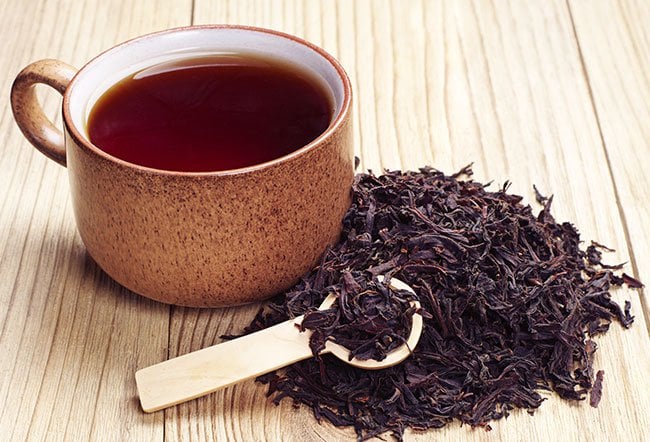
Tea has been consumed by people all across the world for thousands of years, and with good reason. Numerous studies have found that a variety of health benefits of Tea strengthen your immune system, decrease inflammation, and possibly protect you from cancer and heart disease.
While some Health Benefits of Tea is more than others, there is plenty of evidence that drinking tea regularly might have a long-term impact on your health.
Start the kettle, because we’re about to reveal some of the most significant benefits buried in the world’s most popular teas.
Health Benefits of White Tea
White tea is known for its delicate flavor and is derived from the Camellia sinensis plant, which is native to China and India. It is also the least processed type of tea.
Because of its strong antioxidant content, it may be the most efficient tea in treating several types of cancer, according to research. The Health Benefits of White Tea are shown in teeth since it includes a high concentration of fluoride, catechins, and tannins, all of which can strengthen teeth, battle plaque, and make them more resistant to acid and sugar.
This kind also contains the least amount of caffeine, making it an excellent choice for tea users who want to avoid or limit their caffeine intake.
Health Benefits of Herbal Tea
Herbal teas, also known as tisanes, are similar to white teas but contain a combination of herbs, spices, fruits, or other plants in addition to tea leaves. Because herbal teas do not contain caffeine, they are known for their relaxing qualities. Herbal teas come in a variety of flavors, each with its own set of Health Benefits of Tea. Herbal teas that are popular include:
Chamomile tea – Aids in the reduction of menstruation discomfort and muscle spasms, as well as the improvement of sleep and relaxation and the reduction of stress.
Rooibos – Improves blood pressure and circulation, raises good cholesterol while decreasing bad cholesterol, strengthens hair and skin, and relieves allergies.
Peppermint contains menthol, which can relieve stomach discomfort and be used to treat constipation and irritable bowel syndrome.
This tea variant also relieves tension headaches and migraines.
Ginger – Aids in the treatment of morning sickness, can be used to treat persistent dyspepsia and relieves joint pain caused by osteoarthritis.
Hibiscus – Lowers blood pressure and fat levels, improves overall liver function, can curb cravings for harmful sweets and may help reduce kidney stone formation.
Health Benefits of Green Tea Advantages
Green tea comes from China, where the leaves are heated by pan-firing or roasting, and Japan, where the leaves are more typically steamed.
Green tea contains a high concentration of flavonoids, which can help improve your heart health by lowering bad cholesterol and preventing blood clotting. According to research, this sort of tea can also help reduce blood pressure, triglycerides, and total cholesterol.
Health Benefits of Green tea include that it may affect liver, breast, prostate, and colorectal cancers, according to another study. This tea kind has also been proven to be anti-inflammatory, which aids in the maintenance of clear, bright skin.
Matcha, a type of green tea, has gained popularity in recent years. Matcha is a premium, high-quality green tea powder prepared from the whole leaves of shade-grown tea bushes. Matcha contains more antioxidants than regular green tea because it is the only type of tea in which the leaves are consumed. Some claim that the health benefits of one cup of matcha are equivalent to ten cups of normal green tea.
Health Benefits of Black Tea
Black tea is manufactured from the leaves of the Camellia sinensis plant, which also produces green tea. However, because the leaves are dried and fermented, black tea has a darker color and a fuller flavor.
Because black tea contains caffeine, it is recommended to limit your consumption. When you drink a cup of black tea, the Health Benefits Black Tea include flavonoids, which fight inflammation and promote good immune function.
However, you don’t have to drink black tea to reap the benefits of its antioxidants. To ease pain and reduce swelling, it can be heated, cooled, and then pressed on minor wounds, scrapes, and bruises. A black tea bath can also help to reduce inflammation caused by skin rashes.

Health Benefits of Oolong Tea
Oolong tea is a traditional Chinese tea manufactured from the same plant that produces green and black teas. The distinction is that green tea is not permitted to oxidize considerably, but black tea is allowed to oxidize till it turns black. Oolong tea is midway in the middle, therefore it has been somewhat oxidized. This incomplete oxidation is what gives oolong tea its distinctive color and flavor.
Oolong tea contains l-theanine, an amino acid that decreases anxiety while increasing alertness and attentiveness. Scientists have discovered that l-theanine can aid in the prevention of cognitive illnesses such as Parkinson’s and Alzheimer’s.
Oolong tea is also abundant in polyphenols, which have been related to inflammation reduction and the prevention of cancer.

To Avoid Teas
While the Health Benefits of Tea is much, you should avoid the following varieties:
Detox drinks are made for fad diets that promise speedy weight loss. These teas are frequently loaded with laxatives, which can be hazardous to your health.
Tea lattes and beverages from your favorite chain store. While some of these have Health Benefits of tea, such as green tea lattes, they are high in sugar.
Trendy bubble drinks contain a lot of sugar, calories, and carbs and little to no nutritional value.
Herbal teas may cause allergic reactions. Many herbal teas contain fruits, herbs, spices, and flowers to which some people are allergic.
